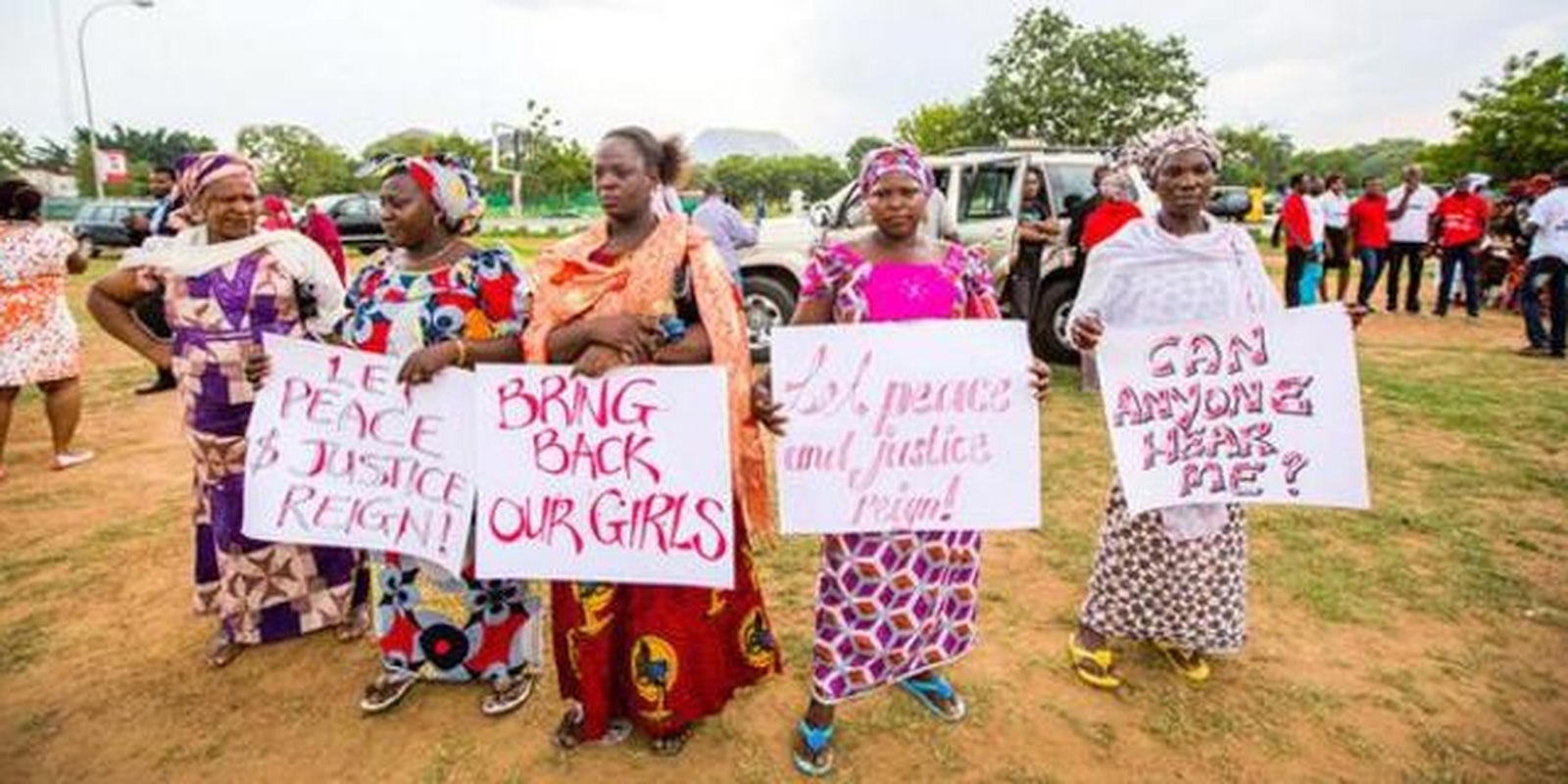On April 14, more than 200 Nigerian schoolgirls were kidnapped from a secondary school in Chibok, in the middle of the night, by a group of armed men. The teenage girls were attending Government Girls Secondary School, attempting to take a physics final before graduating. The school was one of the only ones still open in the area.
It’s believed radical Islamist militant group Boko Haram is responsible, and that this kidnapping was yet another in a series of terrorist acts against Western education, which they believe is a sin. Earlier this year, 59 Nigerian children were shot at a boarding school, and the school was razed.
In the two weeks that have passed, information about the girls’ whereabouts, how many might have escaped, and how many are still missing has been distorted, and the government’s search for the students has been filled with errors, highlighting the power Boko Haram has over Nigerian President Goodluck Jonathan. It’s also angered many that the disappearance of 200 girls wasn’t getting more national media attention, when the South Korean ferry disaster was getting round-the-clock coverage.
Yesterday, the Washington Post reported that the missing girls may have been sold to members of Boko Haram as “brides,” for a price tag of $12 each. There were also claims that girls may have been taken into Chad and Cameroon, and sold to Islamist militants.
One girl, 18-year-old Deborah Sanya, managed to escape her captors. The New Yorker’s Alexis Okeowo spoke with Sanya and her father, as well as other members of the community, and emphasized how little official help they have in the search:
“For a while after the abduction, girls trickled back into town—some rolled off trucks, some snuck away while fetching water. That trickle has stopped.
“Nobody rescued them,” a government official in Chibok told the New Yorker. “I want you to stress this point. Nobody rescued them. They escaped on their accord. This is painful.”
Yesterday, a protest march took place in the capital Abuja and was promoted on Twitter via the #BringBackOurGirls hashtag. Women and men dressed in red and demanded the government step up their response. #BringBackOurDaughters and #HelpOurGirls have also been circulating.
Women Rally In Nigeria To Demand More Action For 200 Kidnapped Girls https://t.co/kIdXG5cROk #BringBackOurGirls pic.twitter.com/VsDX29XTjI
— Women & Girls Lead (@WomenGirlsLead) May 1, 2014
#BringBackOurGirls my love to all the parents in Nigeria that’s going though this stress right now!😥❤️ pic.twitter.com/JbJUndL4KW
— #Shokoto! (@ShowaShins) May 1, 2014
Former World Bank Vice President Oby Ezekwesili has become the leader of the #BringBackOurGirls movement. “We are going to the National Assembly because that is where each of these girls has a representative,” she told protestors. Protest organizer Hadiza Bala Usman called out the lack of search and rescue:
“If this happened anywhere else in the world, more than 200 girls kidnapped and no information for more than two weeks, the country would be brought to a standstill.”
The #BringBackOurGirls march will be a continuous exercise until it yields results. pic.twitter.com/s56XPoZtgQ
— Blossom Nnodim (@blcompere) May 1, 2014
To the cynical tweets about the effectiveness of #BringBackOurGirls: you’re wrong. This is about NOT FORGETTING this issue. And we won’t.
— Ayo Sogunro (@ayosogunro) May 1, 2014
These girls are our sisters, daughters, Nation builders of tomorrow. #BringBackOurGirls
— Chimamanda Adichie (@ChimamandaSays) May 1, 2014
The press is reporting the girls are being married off by their captors. Which is nothing more than a euphemism for rape #BringBackOurGirls
— Christiana A Mbakwe (@Christiana1987) May 1, 2014
#BringBackOurGirls protests across Nigeria #Pictures #Photo‘s pic.twitter.com/g6UsKqcC3J
— TOP10NAIJA (@toptennaija) April 30, 2014
The hashtag has mobilized men and women into organized acts of protest, and marches are now being scheduled in different cities. So far, there’s been no word of outside help from an organization like the UN. In a recent op-ed for the Guardian, Okey Nbide lamented a country that won’t account for its own:
“It’s weird and dispiriting, this experience of belonging within a country that can’t or won’t count its people, that can’t or won’t figure out how many of its school children are in the hands of abductors.”
It’s easy to get caught up in the economic, political, and religious rhetoric on social media, but the heart of this issue remains the most tragic: These young women were disappeared simply because they wanted to learn.
Photo via Women & Girls Lead/Twitter


